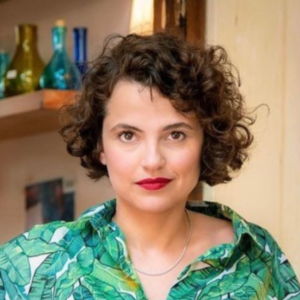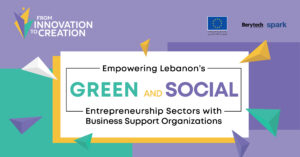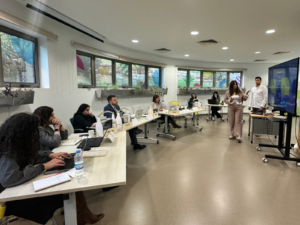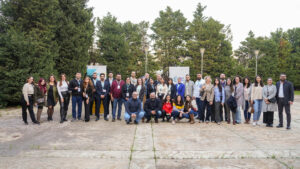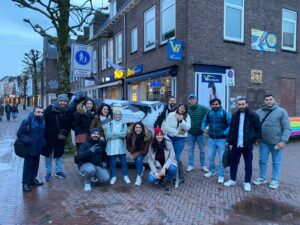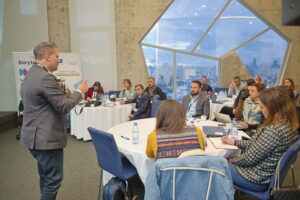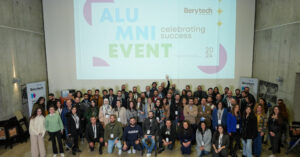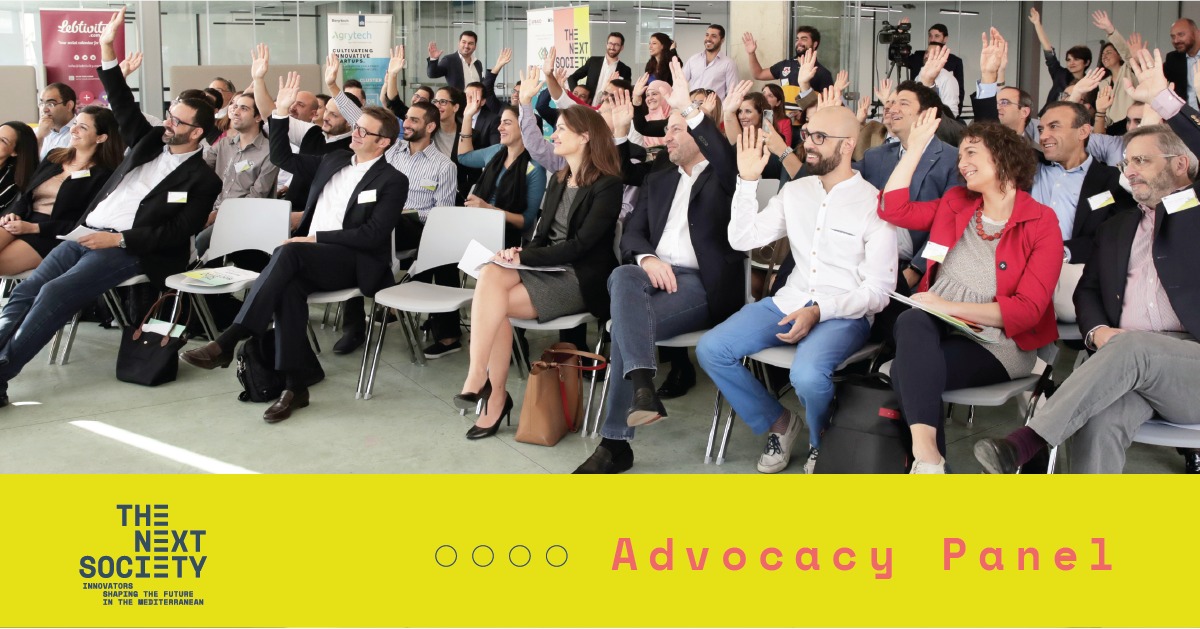
Under THE NEXT SOCIETY project, Berytech organized the fourth advocacy panel meeting to showcase the project’s achievements over five years and highlight the impact of the activities held under it to empower the Lebanese Technology Transfer Ecosystem on a national scale.
The panel held on October 26, 2021, followed the three advocacy panels organized between November 2017 and March 2020 (read more here and here) gathered accelerators, incubators, donors, program beneficiaries, and academia from the Lebanese entrepreneurship ecosystem, in addition to the regional network of THE NEXT SOCIETY stakeholders from the Mediterranean.
The Objective
The advocacy panels held under THE NEXT SOCIETY project act as a national task force that facilitates public-private-academic dialogue, provide benchmarks and analyses and share experiences on innovation and competitiveness to strengthen the innovation system, foster coordination among actors involved, and improve concrete instruments of the innovation policy.
In his opening speech Matias Fillon, Coordinator of THE NEXT SOCIETY from ANIMA Investment Network, explained how these advocacy panels have marked the project for 5 years, “We’ve organized these panels in each country to take stock of the priorities defined by the members and to promote the progress of the project according to the needs highlighted by these members. Whether they were related to technology transfer, cluster cooperation, startup international relations, or other key challenges tackled by the project, we’ve always kept a view on sustainability and the improvement of the existing provisions dedicated to innovators or researchers. Our objective with these oanels is to promote what we are doing within this project, and how we can push its outcomes to make them as sustainable as possible, by involving authorities, by establishing synergies, by promoting the beneficiaries and their projects as well, so that all of that can generate impact.”
In her turn, Krystel Khalil, Projects Lab Director at Berytech recapped the impact that the project had over the past five years “Thanks to this project we could expand our impact regionally, build strong networks and open many opportunities for clusters and startups, researchers, beneficiaries. I’m really happy to see the concrete outcome and to hear the success stories today. After 5 years of hard work, we could establish a strong innovation platform and a strong network of supporters and innovators. All the initiatives we developed will become a strong baseline to foster future collaborations and programs for the Mediterranean.”
Boosting the Technology Transfer Ecosystem in Lebanon
Mohab Anis, CEO of Innovety assisted in building an innovation roadmap for Lebanon. He briefly recapped his findings, “We broadly categorized the main players of the Lebanese Technology transfer into three main categories, which in turn define the three main stages for doing tech transfer coming out of universities; from research management to innovation toolboxes where we support researchers to understand the importance of their researches, to having the component which leads to the innovation commercialization, which are the support schemes allowing researchers to either sell their technologies to the outside world or even spin-off their startups.
Insert picture.

Research 2 Innovation Lab program
A panel discussion on empowering technology transfer offices and innovations in 4 Lebanese Universities moderated by Mathias Fillon, hosted Dr. Mohammed Aljafari from I-Park Jordan, Prof. Hadi Kanaan from USJ, Dr. Joseph Saab from USEK and Dr. Lara Hanna from USEK.
Within the discussion, Dr. AlJafari commented: “It’s difficult to say whether there are barriers to technology transfer, it is not an efficient process in all cases. In the best scenarios, technology transfer is not an efficient process. Researchers will by the nature of their work create new intellectual property even if they don’t mean to and the percentage of this intellectual property that reaches society one way or the other is very small. The 100 billion dollar question worldwide is how do we make this process more efficient. We decided to look at what we have in developing technology transfer labs: we have very good universities across the region, introducing excellent research and we have a lot of researchers. if we are going to create a value chain based on the innovations that result from a university body we need to find a way to bridge all the gaps all together and to do so we need two steps: 1/ the universities have to be able to identify and catalog their innovation outputs and 2/ mobilize innovation towards the potential industry across borders and for that we use direct tech transfer, brokerage or even hire European companies to do it.”
Internationalization Program
Charly Bechara, General Secretary at AFPI, talked about supporting Lebanese ventures to access global markets. AFPI is an organization based in France helping Lebanese tech talents access the job tech market in France. “Through the program, AFPI worked to develop an internationalization program for Lebanese startups to build international strategies and access international markets with a special focus on EU markets. This program will be used as a national mechanism for Lebanon to be adopted by various ecosystem partners to support the startup networks in the challenging economic situation.”

Soft-landing program to support startup growth
Abir Frikha, Programs Manager at Factory 319 talked about the work of Factory 319 in managing the e-softlanding of 3 startups in the program Sila, OCT Analysis, and Nonoebers by facilitating their entry into new markets, allowing them to learn the process of international expansion, gain a better understanding of the ecosystems and opportunities, identify potential partners and customers, and test the value proposition in a new market.
Jad Farid Assaf, Co-founder at OCT Analysis talked about his journey in creating the first image analysis and AI software that analyzes OCT corneal scans. Read his story here.
Mike Harb, Co-founder at Sila, talked about creating A platform for online assessments, replacing video monitoring with lesser privacy-invasive technology. Read his story here.
Mr. Hassan Azazy, Co-founder at Nano Ebers, talked about creating Hemostatic sponges designed and optimized to instantly stop severe bleeding. Read his story here.
About THE NEXT SOCIETY
The Next Society’s goal is to help shape the future of the Mediterranean by mobilizing entrepreneurs, innovators and corporate ecosystems to tackle the innovation and sustainable development challenges faced in the region. The Next Society gathers a large network of over 300 business and innovation, research, and investment organizations, 2,500 international SMEs and entrepreneurs from 30 countries.



